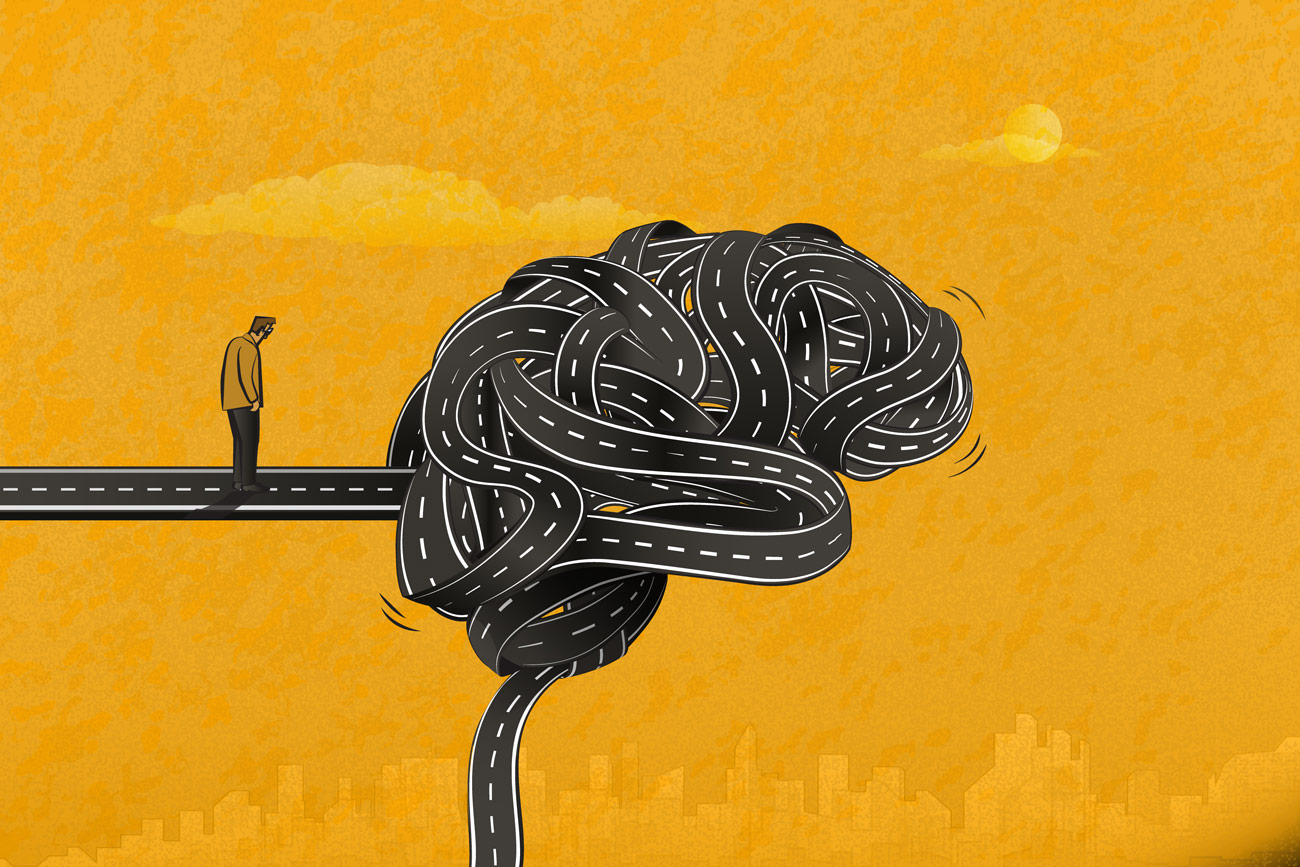
How To Calm Anxiety And Stress: 5 Self-Soothing Strategies
We take a look at how to calm anxiety and stress – two words that we hear quite often in today’s world, whether it is in the media or in conversations with friends, family or colleagues. On the surface, it might seem like we are in the midst of an anxiety epidemic; however, that may not necessarily be the case. One contributor to the rise in general use of the words ‘anxiety’ and ‘stress’ could be the increase in awareness surrounding mental health issues, and the resulting influx in people recognising symptoms in themselves and reporting these to a doctor.
On the other hand, some evidence suggests a rise in stress and anxiety due to recent events such as the pandemic, global conflict and the cost of living crisis in the UK. According to the Mental Health Foundation, there were 8.2 million cases of anxiety in the UK in 2013. In 2020, the Office for National Statistics reported that almost half (49.6%) of people in Great Britain reported “high” (rating 6 to 10) anxiety during the first lockdown in March. Even more recently, research by YouGov and The British Psychological Society found that the cost of living crisis is causing financial anxiety in 61% of women and 47% of men.
While there are many causes of anxiety and stress in our modern world, there are also many things that you can do at home to alleviate mental strain. In this article, we look at how to calm anxiety and stress so that you can improve and take control of your mental health moving forward.
How to calm anxiety and stress at home
1. Mindfulness exercises
Mindfulness is something that you can practise every day in order to improve how you cope with anxiety and stress. Activities may include breathing exercises, meditation, filling in a mindfulness colouring book, and body scanning (mentally tuning into each part of the body, from head to toe, noting how it feels and relaxing it if it feels tense). Mindfulness activities don’t have to take up lots of time – many can be completed within 20 minutes or less, allowing you to take a short break before carrying on with your day.
2. Improve your sleep routine
This can seem like a catch-22, as improving your sleep routine can help you alleviate stress and anxiety, but it may seem impossible to get good sleep when you are already experiencing these negative emotions. Nevertheless, it is a good idea to implement a quality sleep routine in order to reduce the amount of stressors in your life.
You could try:
- Ensuring your bedroom is a cool temperature (around 18 degrees Celsius is ideal)
- Meditating before bed to help clear your mind
- Reading instead of looking at your phone
- Drinking a caffeine-free hot drink such as Ovaltine in the hour before you go to sleep
- Blocking out light from the moon or street lights by using blackout curtains or blinds
- Sleeping in a different room if your partner snores, talks in their sleep or moves around a lot, and this regularly wakes you up
3. Journaling
Journaling is a therapeutic form of self care that allows you to free your mind of thoughts that may be ruminating in your mind. Journaling, even if for just 20 minutes per day, may be able to help you understand, process and even find solutions to issues that you are facing in your life.
To begin journaling, all you need is a piece of paper and a pen. Many people choose to write in a daily diary, whereas others use apps on their phones or computers as a digital version of a diary.
4. Minimise screen time
While normal computer use is not inherently harmful to mental health, the things we see online and on social media may negatively impact us.
Greater social media use is linked to poorer sleep quality and higher levels of anxiety and depression, so it may be beneficial to reduce your contact with social media platforms in order to improve your wellbeing.
Similarly, looking at news websites, watching videos or even reading articles can trigger stress and anxiety, so it may be advisable to limit your exposure to this type of content. There are many applications which can set a time restriction on the use of certain websites. Try these if you need help with limiting your usage.
5. Go for a walk or do some exercise
Dr Christos Kouimtsidis, Consultant Psychiatrist at The London Psychiatry Centre, says: “It may seem like a generic piece of advice for mental health self care, but there’s a reason why exercise is often encouraged. When you are anxious or stressed, this can stimulate your body to release adrenaline, the hormone that triggers the flight-or-fight response. If you do not do anything to relieve this response, you may feel restless, agitated and irritable. By going for a walk or doing some aerobic exercise, you can encourage your endocrine system to rebalance your hormones, helping you feel more at ease.”
When do stress and anxiety become serious problems?
It’s normal to deal with worries, stress and anxieties in everyday life, however, if you are feeling constantly stressed or anxious and this is affecting your regular activities, it may be wise to seek support, whether that’s talking to a trusted friend or family member, or speaking to a mental health professional.
You can find out more about the signs and symptoms of stress and anxiety disorders with the help of our online articles. If you need further support, you can contact our friendly team by using the below details:


